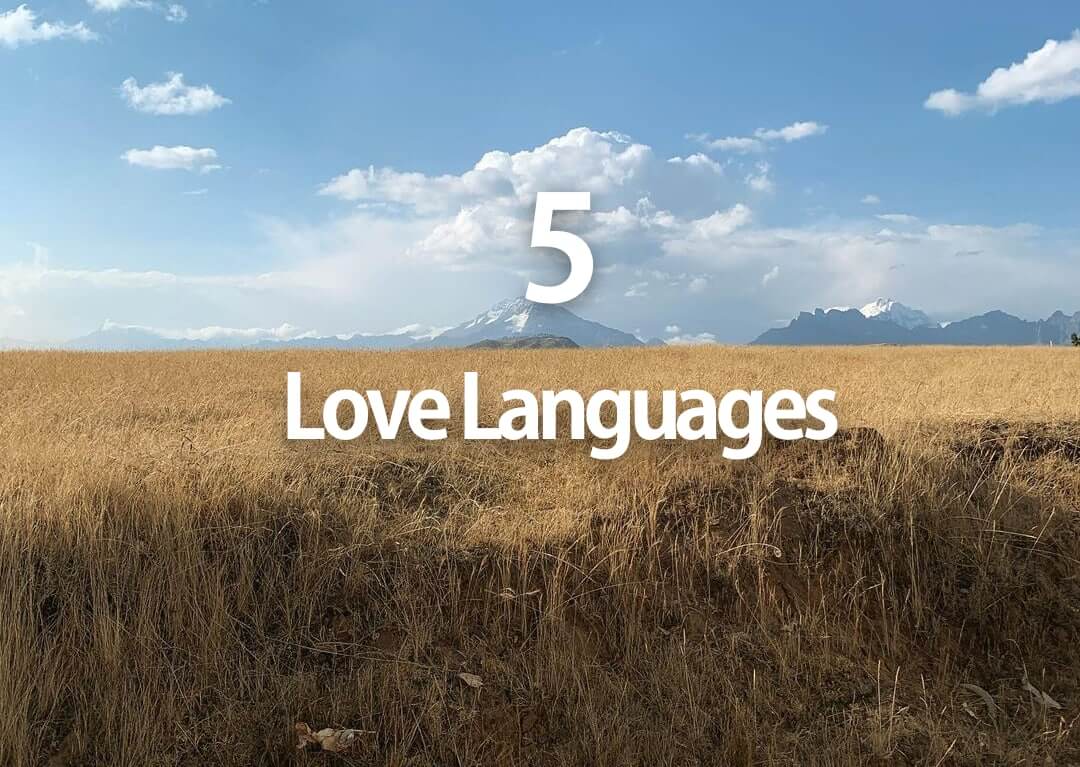We all have unique preferences for the ways in which we feel most loved and appreciated. The five main love languages are words of affirmation, physical touch, quality time, acts of service, and receiving gifts. By identifying your love language, you can better understand your own needs and desires, as well as those of your partner.
The 5 Love Languages
1. Words of affirmation.
What does this mean? If your love language is words of affirmation, you feel cherished when hearing sweet expressions, receiving compliments, or when your partner conveys their appreciation for you.
For those with this love language, hearing your partner express their love for you genuinely makes you feel their affection. While some people may require actions to accompany words, for you, words alone are sufficient. For example, when your partner comments on your appearance or praises a specific aspect about you, such words can make you feel more loved than a hug or a kiss might.
2. Physical touch.
What does this entail? If your love language is physical touch, you feel loved when receiving physical affection. This can include holding hands, an arm around you, hugs, kisses, or any form of physical contact with your partner.
For individuals with this love language, the desire for closeness and frequent hand-holding with their loved ones is strong, as well as enjoying numerous hugs and kisses. If your partner isn’t naturally affectionate, it’s important to communicate your needs by kindly requesting more physical affection and explaining that this is your love language.
3. Quality time.
What does this entail? If your love language is quality time, you cherish and feel loved when your partner dedicates time to be with you. A common misconception is that merely being in someone’s presence is enough. However, truly being present and undistracted during shared moments is what defines quality time. It’s essential to be attentive if this is your partner’s love language.
For those with this love language, you value the moments when your partner sets aside time for you, even if it’s just to be together doing nothing. You appreciate activities that involve just the two of you, such as going for a walk, dining out, or watching a movie. What matters most is experiencing genuine quality time together.
4. Acts of service.
What does this entail? If your love language is acts of service, you appreciate when people perform kind deeds for you. It’s not about the words they say or spending time with them that makes you feel loved. Instead, it’s their actions that truly convey their affection.
For individuals with this love language, what matters most is when your partner offers help or makes life a bit easier by doing something you would typically handle yourself. For example, if you usually do the dishes but your partner offers to take care of it, or if you mention wanting a cup of coffee and they make it for you instead. These actions, whether grand or small, make you feel genuinely loved.
5. Receiving gifts.
What does this entail? If your love language is receiving gifts, you feel loved when you are given presents. It could be the thoughtful consideration that goes into selecting the right gift or the act of receiving the gift itself that makes you feel cherished.
For those with this love language, the joy of receiving gifts is more significant than for others. You genuinely appreciate knowing that your partner has invested time and effort in determining what to give you, whether it’s a simple or more extravagant gift.
4 Ways to Identify Your Love Language

If you’re still uncertain about which love language resonates with you after reading the descriptions, consider asking yourself the following questions to gain more clarity:
1. Reflect on your relationship concerns.
Think about the most common issues you face within your relationship. Recognizing these problems will likely help you find your love language. The element you may be missing could be what you appreciate most.
2. Observe how you show love.
Pay attention to how you usually express your love for others. Consider the small gestures you make to show someone you care or love them. We often demonstrate love in the same way we want to receive it. For example, if you often provide supportive words to your partner, your love language might be words of affirmation, as that is your chosen way of expressing love and care.
3. Consider your desires in your relationship
Think about what you consistently desire within your relationship. If you always want to be close to your partner, like holding hands or receiving affection, your love language may be physical touch. On the other hand, if you long for quality time spent together without any specific activities, your love language could be quality time. Reflect on your most common needs in your relationship and compare them to the list of love languages to identify which one best suits your situation.
4. Explore your love language preference.
Determine if a specific love language stands out as more appealing to you. Maybe one seems more attractive, and you could be more attentive when your partner participates in activities related to that particular love language to analyze your feelings further. For example, if you enjoy personal space and dislike being touched, you can be sure that physical touch isn’t your love language.
Benefits of Knowing Your Love Language

It is crucial to understand the benefits of identifying your love language in order to appreciate its positive impact on your relationship. Embracing this self-awareness can lead to numerous advantages, such as:
Enhances your partner’s ability to express love.
When you know your love language, you can tell your partner, so they understand how to show love more effectively. If they usually show love in one way, but your love language is different, you may not have felt their love as strongly. Once you know your love language, your partner can show their love better.
Helps you identify your partner’s love language.
In the process of identifying your own love language, you will become familiar with all the love languages. As a result, you may recognize one that seems to align with your partner’s preferences.
Encourages personal growth.
When you try to show love to your partner in their preferred love language, you may step out of your comfort zone if it’s not your usual way of showing love. Going beyond your comfort zone leads to personal growth. Also, learning more about yourself and gaining knowledge helps you grow personally.
Five Love Languages Faqs

Can I have multiple love languages?
Yes. You can have multiple love languages, but you likely have one primary one, or perhaps a couple that you switch between often.
Can my love language change?
Yes. Your love language may change depending on who you’re with, and it might differ with different people. It depends on the situation. However, some people might have a consistent love language despite varying circumstances. It’s perfectly normal to grow out of certain love languages or feel that it has changed.
Is it important to identify my partner’s love language?
Definitely, it’s crucial to identify your partner’s love language so you know how to show them love and fulfill their needs. In a relationship, both people are equally important, so you should prioritize understanding your partner’s love language.
Will identifying my love language save my relationship?
Probably not. If something is wrong in your relationship, you likely can’t fix it just by figuring out how to give your partner love in a better way unless that was the problem. However, even if you think that was the problem, another underlying issue is likely causing turbulence in your relationship. Although important, it won’t save your relationship.
How can I tell what my partner’s love language is?
Pay attention to what they appreciate, or simply ask them what makes them feel loved the most. Depending on their answer, categorize it accordingly to identify their love language.
Can I identify my love language if I am single?
Yes. You don’t have to be in a relationship to be shown love. Your friends and family can also show you love, and everyone needs to receive love.
After reading this article, you should feel more knowledgeable about love languages, and you should be able to easily identify your own love language and perhaps even your partner’s love language. Doing so will positively affect your relationships. Although you may think the concept of love languages is simple, understanding them can make a significant difference.

